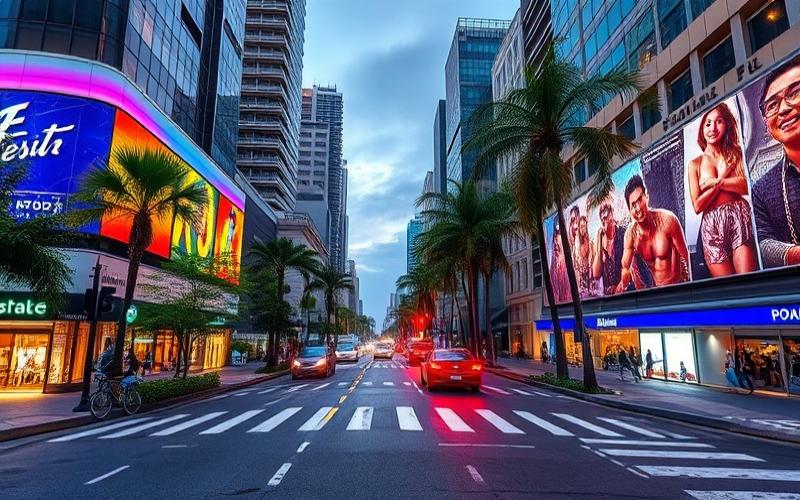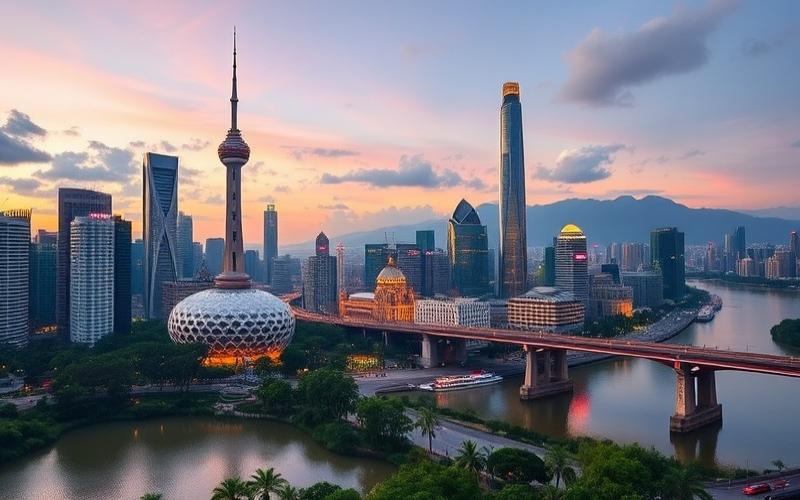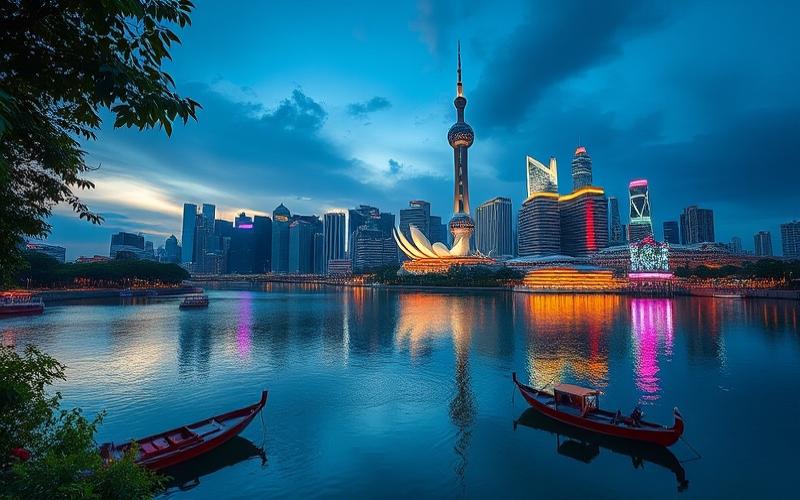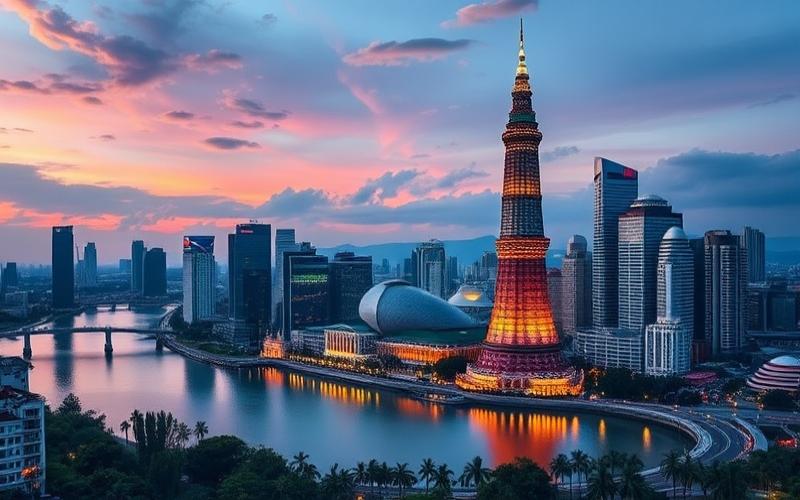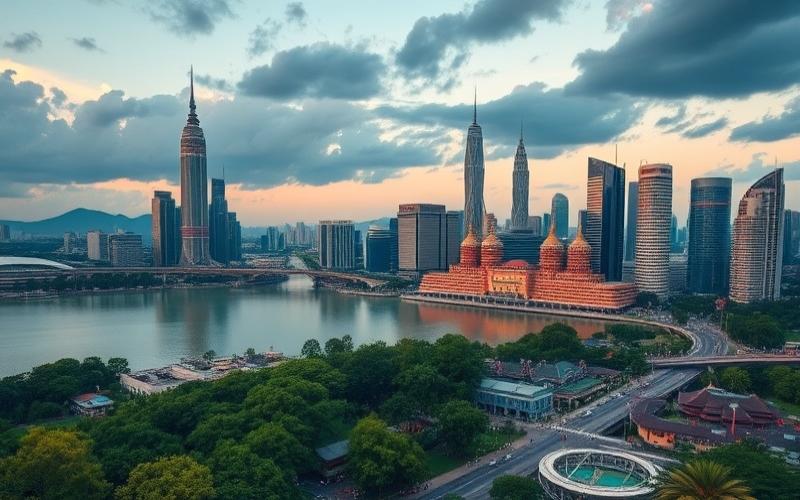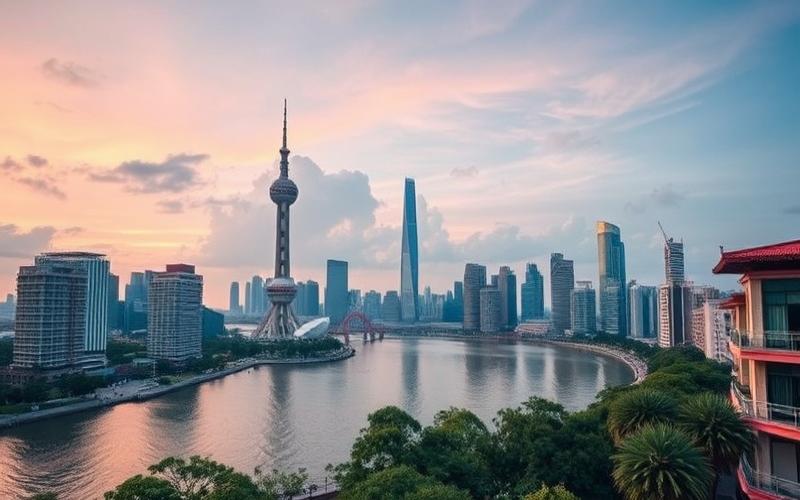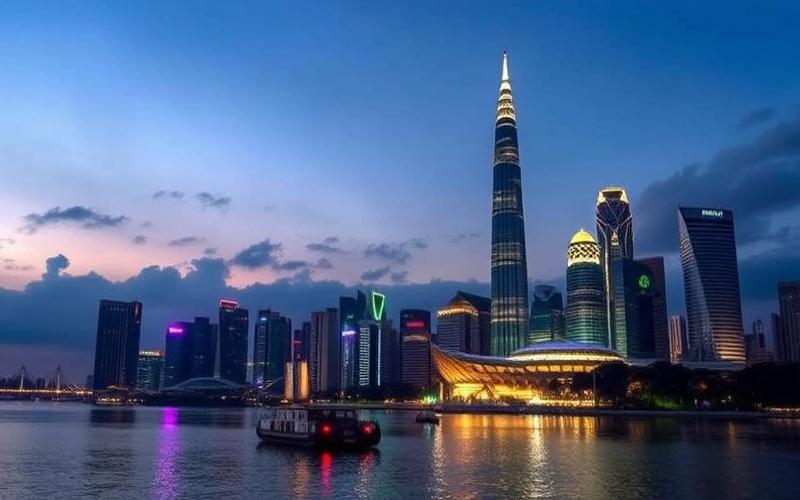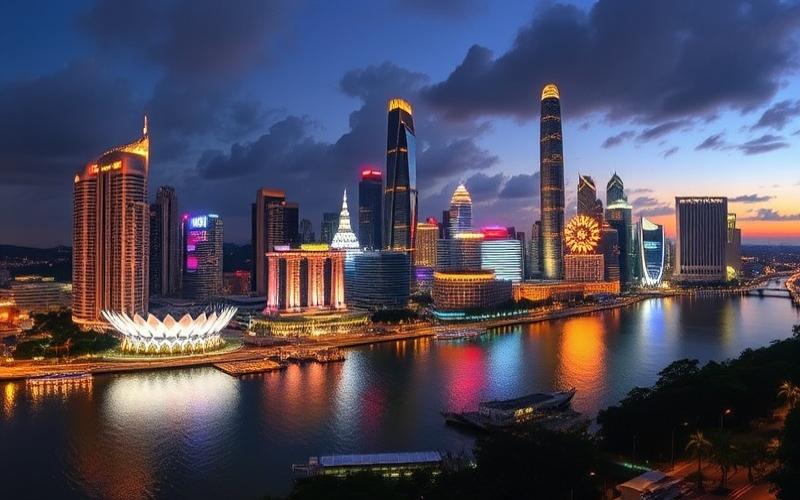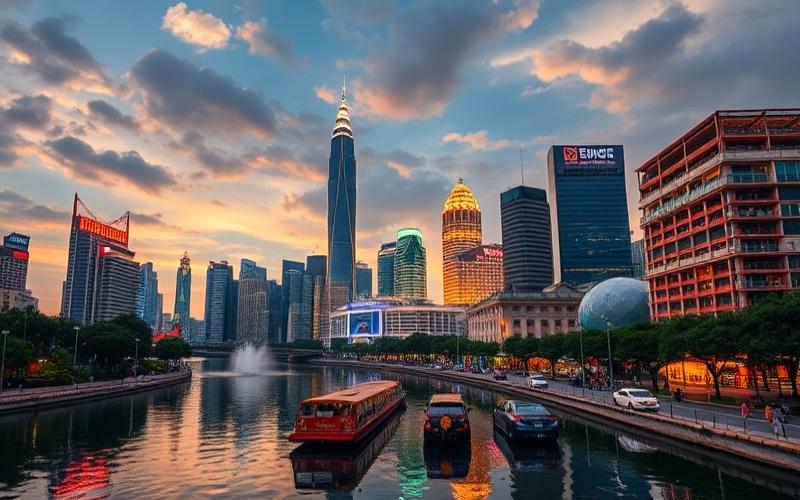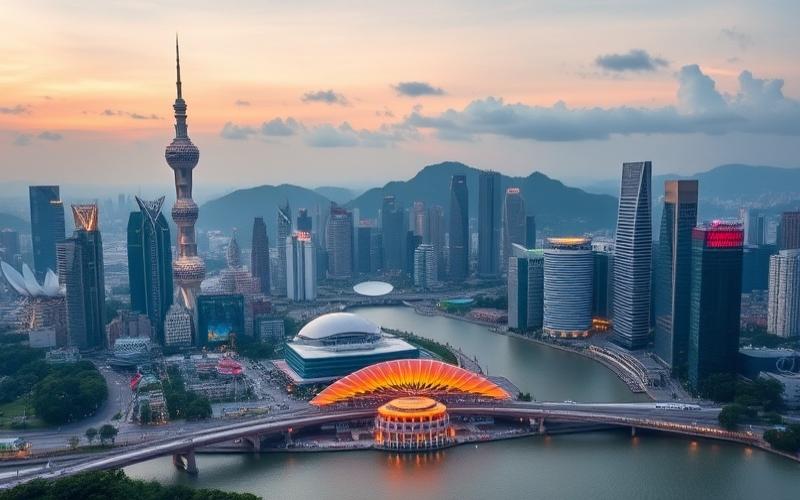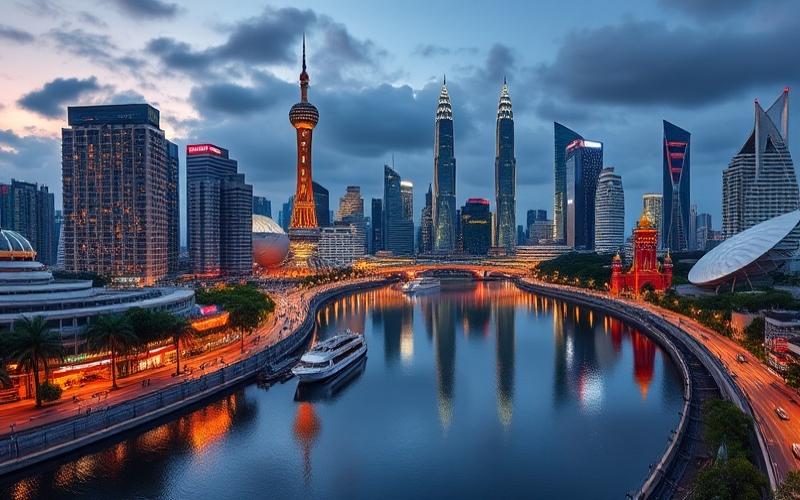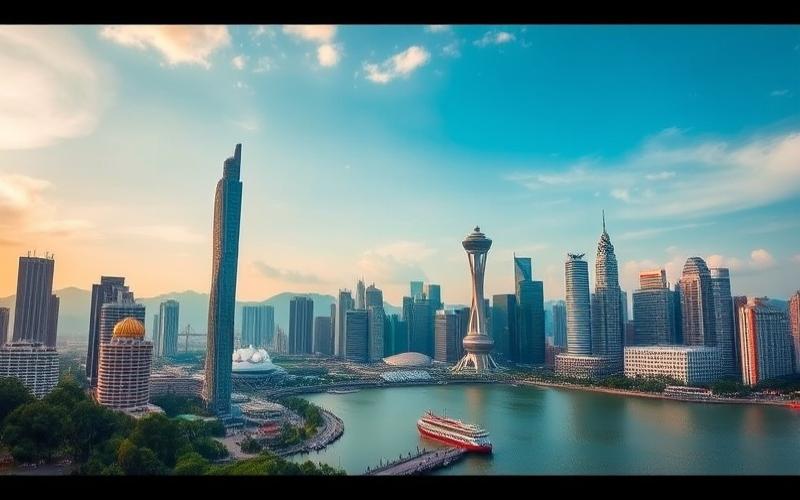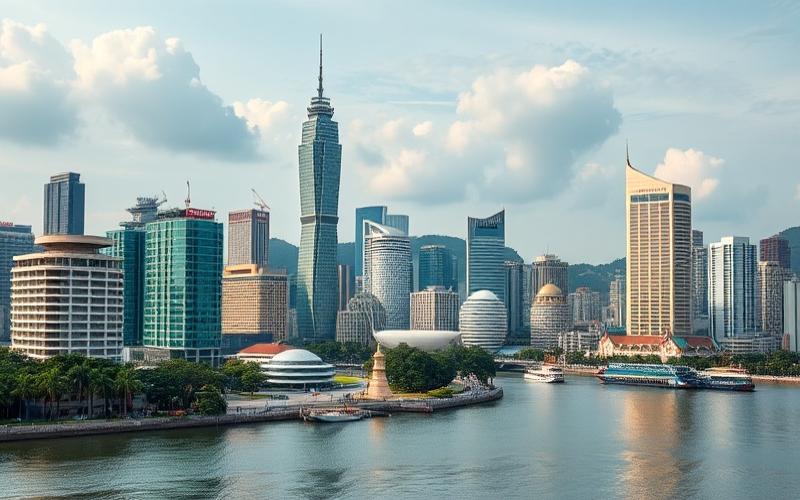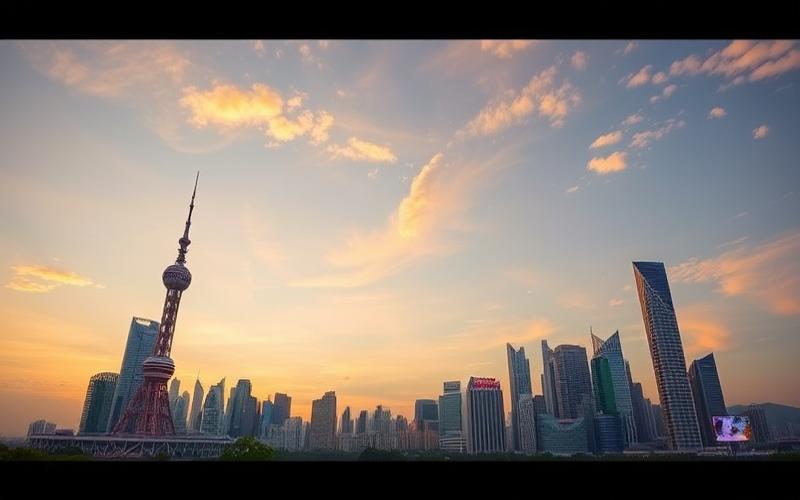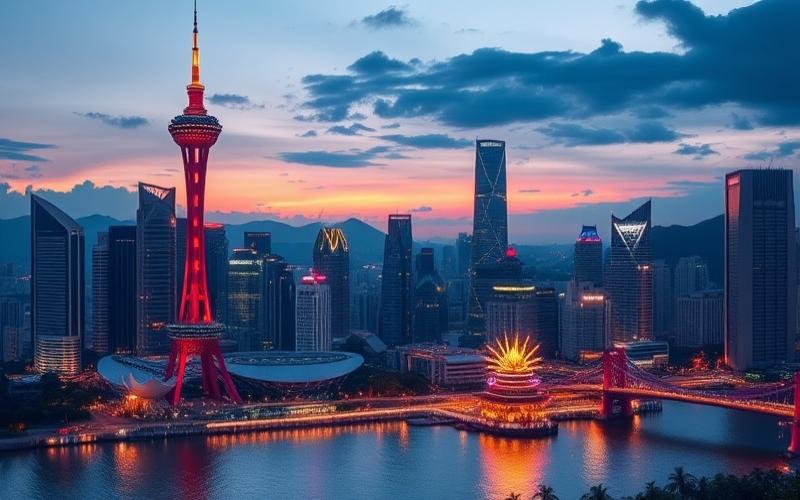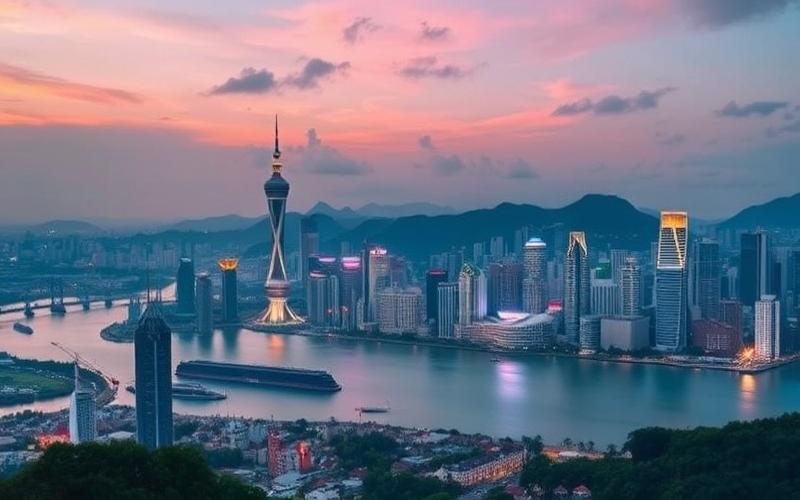
 Published on and written by Cyril Jarnias
Published on and written by Cyril Jarnias
Tourism plays a crucial role in Singapore’s economy, attracting millions of visitors annually and significantly impacting the city-state’s real estate market. This article provides a detailed exploration of how tourist influx influences various aspects of Singapore’s property sector, from the most sought-after areas to price effects and rental investment opportunities.
Singapore’s Tourist Gems: Thriving Neighborhoods
Singapore boasts numerous popular tourist areas that not only attract visitors but also stimulate the local real estate market. Among the most sought-after neighborhoods are:
- Marina Bay: This iconic district hosts world-renowned attractions like Marina Bay Sands and Gardens by the Bay. Property demand here is particularly strong, with prices among the city’s highest.
- Orchard Road: Singapore’s famous shopping belt attracts numerous tourists and real estate investors. Both residential and commercial properties are highly sought after here.
- Sentosa: This resort island south of Singapore is a true paradise for tourists and wealthy real estate investors. Luxury properties are abundant and highly coveted here.
- Chinatown and Little India: These historic and cultural neighborhoods attract many visitors seeking authenticity. The property market here has seen renewed interest, particularly for renovated traditional shophouses.
These popular tourist areas have seen their real estate markets develop significantly over the years, with growing demand for both residential and commercial properties. Local and foreign investors are particularly drawn to these neighborhoods, helping maintain high prices and strong market competition.
Tourism’s Effect on Prices: Upward Pressure
The constant influx of tourists to Singapore directly impacts property prices, particularly in the most frequented areas. Several factors contribute to this upward trend:
Increased Demand: Singapore’s popularity as a tourist destination creates additional demand for short-term accommodations like hotels and vacation rentals. This supply pressure affects the entire real estate market.
Foreign Investments: Many tourists, charmed by Singapore during their visits, decide to invest in local real estate. This international demand helps maintain high prices, particularly in high-end and luxury segments.
Infrastructure Development: To meet tourist needs, Singapore heavily invests in infrastructure, increasing the appeal and value of surrounding properties. For example, Changi Airport’s expansion or new tourist attraction developments positively impact property prices in affected areas.
Land Scarcity: As a city-state with limited land area, tourist pressure accentuates available land scarcity, helping maintain high prices in the real estate market.
According to recent data, Singapore residential property prices have seen significant increases in recent years, partly due to the city’s tourist appeal. For instance, in Marina Bay, average luxury apartment prices can reach 2,500 to 3,000 Singapore dollars per square foot (approximately $1,800 to $2,150 per square foot).
Rental Investment: A Golden Opportunity for Property Owners
Singapore’s thriving tourism offers numerous rental investment opportunities for property owners. Here are key aspects of this market:
Short-Term Rentals: Despite strict regulations, the short-term rental market (Airbnb-type) remains attractive in certain authorized areas. Owners can benefit from high rental income, particularly during peak tourist seasons.
Serviced Residences: Hotel residences and serviced apartments are highly sought after by business tourists and long-term visitors. These properties typically offer attractive rental yields for investors.
Seasonal Rentals: Some owners opt for seasonal rentals, capitalizing on peak tourist periods to maximize rental income.
Hospitality Investment: For more ambitious investors, acquiring shares in hotel projects or developing small accommodation establishments can offer attractive tourism-related opportunities.
It’s important to note that Singapore has implemented strict regulations regarding short-term rentals, including a minimum three-month rental period for private properties. However, the government is currently considering relaxing these rules in certain areas to meet growing tourist demand.
An Evolving Market
Tourism’s impact on Singapore’s real estate market is undeniable and will likely continue shaping the sector in coming years. As the city-state strives to maintain its status as a premier tourist destination, the real estate market will need to adapt to new trends and changing visitor needs.
Real estate investors and owners should remain attentive to regulatory developments and emerging tourism-related opportunities. With a strategic approach and good market understanding, tourism-related real estate in Singapore can offer attractive long-term return prospects.
Good to Know:
Before investing in Singapore real estate, it’s crucial to research local regulations thoroughly, particularly regarding foreign purchases and short-term rental restrictions. Legal and tax advice is strongly recommended to navigate this complex but potentially lucrative market.
Disclaimer: The information provided on this website is for informational purposes only and does not constitute financial, legal, or professional advice. We encourage you to consult qualified experts before making any investment, real estate, or expatriation decisions. Although we strive to maintain up-to-date and accurate information, we do not guarantee the completeness, accuracy, or timeliness of the proposed content. As investment and expatriation involve risks, we disclaim any liability for potential losses or damages arising from the use of this site. Your use of this site confirms your acceptance of these terms and your understanding of the associated risks.

